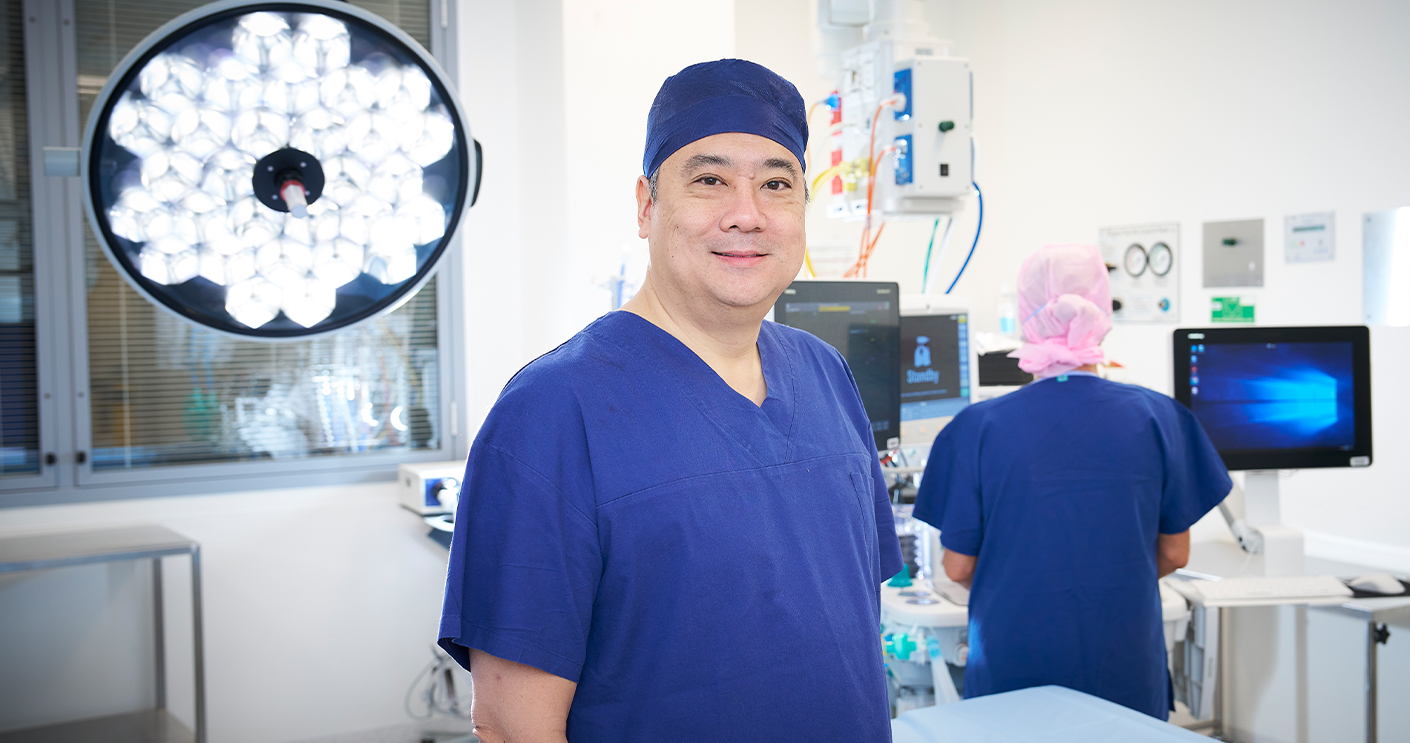Spine surgeons who perform complex spinal and deformity surgeries at Macquarie University Hospital are using an advanced image-based navigation system that reduces radiation exposure and time under anaesthetic for patients during long and complex procedures.
Camera-based technology coupled with machine-vision algorithms allows FLASH™ Navigation to use multiple light sources and advanced sensors to map and visualise a patient’s surface anatomy in just seconds.
Dr Brian Hsu, adult and paediatric spine surgeon at Macquarie University Hospital has a particular interest in spinal deformity, complex cervical reconstructions, spinal osteotomies and degenerative cervical and lumbar conditions.
“As an enabling technology, 7D is advantageous in certain aspects of surgery,” Dr Hsu says.
“The rapidly produced 3D images enable us to see where we are within the anatomy, and within the bone. The 7D device guides with relative ease and collects the topographical detail needed, which is very useful to the surgeon – and also the patient, who benefits from a shorter overall operating time.
“Older-style navigation systems and robotic systems require the surgeon to follow a more convoluted process, placing markers and imaging under CT imaging for each and every segment of the spine. This is a significant dose of radiation for the patient and can result in an extended time under general anaesthetic.”
While similar to an intraoperative CT, FLASH™ Navigation does not use radiation and the images it produces are compared with a preoperative CT scan. A typical spinal fusion for a paediatric scoliosis patient requires the insertion of up to 20 pedicle screws in 10 vertebral segments. When using FLASH™, this procedure usually takes about four hours of surgical time, benefiting the patient with less time under anaesthetic and reduced blood loss during surgery.
Dr Hsu is an active member of the Scoliosis Research Society, North American Spine Society and the American Academy of Orthopaedic Surgeons, and is an officer of the international knowledge sharing foundation AO Spine Asia Pacific. He is a member of the Society of Minimally Invasive Spine Surgery and a Fellow of the Hong Kong Academy of Medicine.
Dr Hsu is actively engaged in teaching and education both locally and internationally and currently supervises a group of Spine Fellows at Macquarie University and The Children’s Hospital at Westmead. Dr Hsu regularly teaches advanced bioskills workshops and presides over several educational conferences.


 Back to homepage
Back to homepage